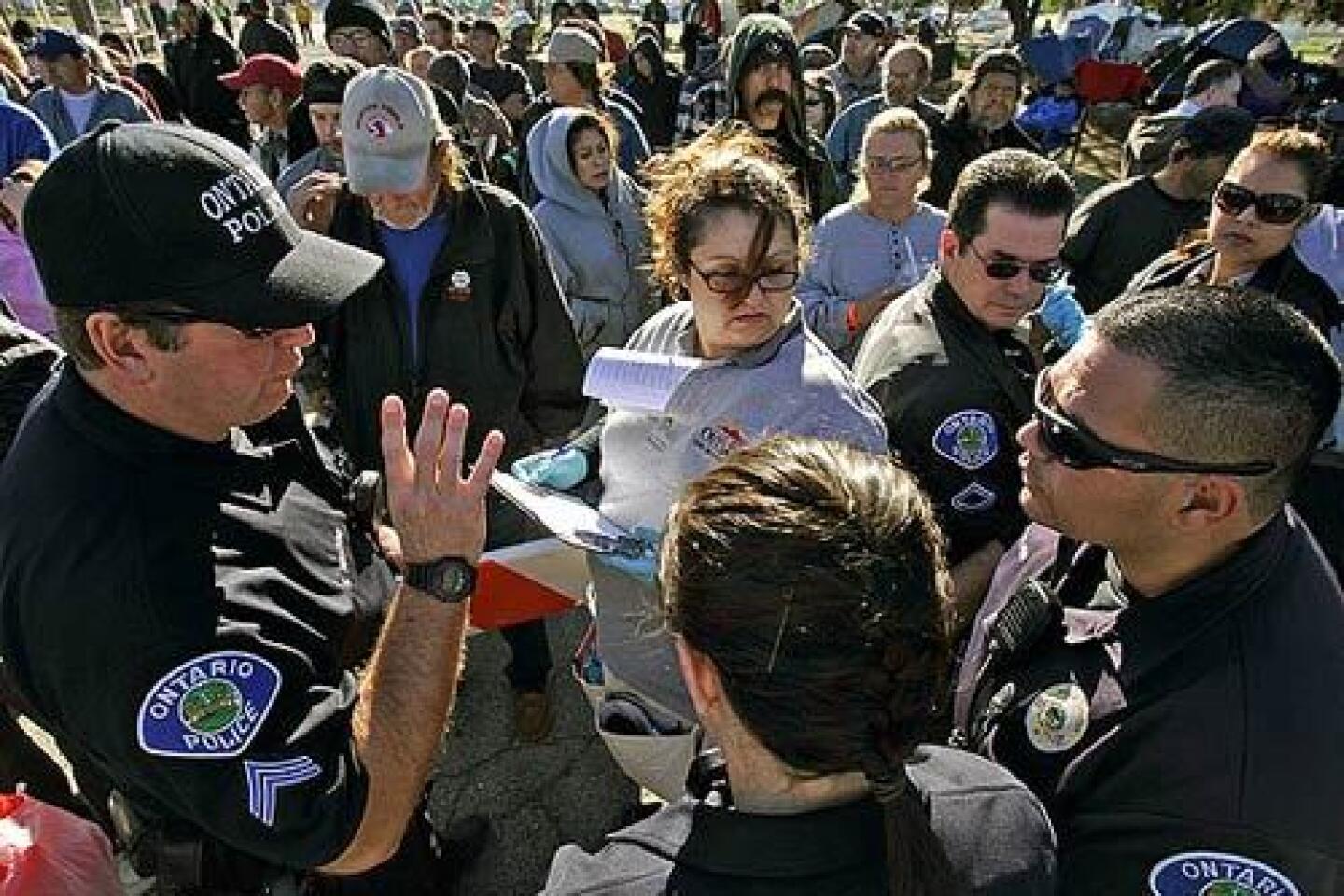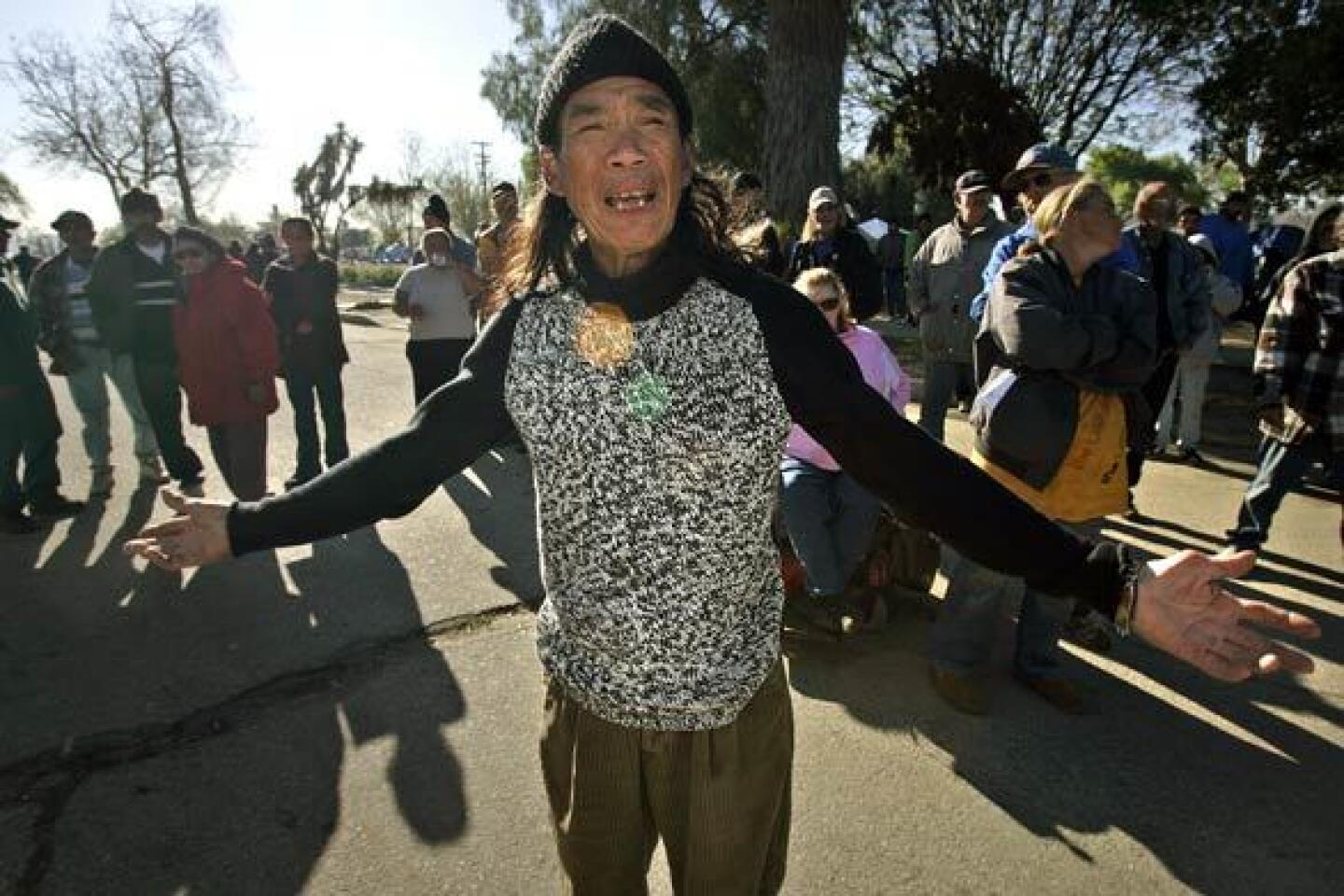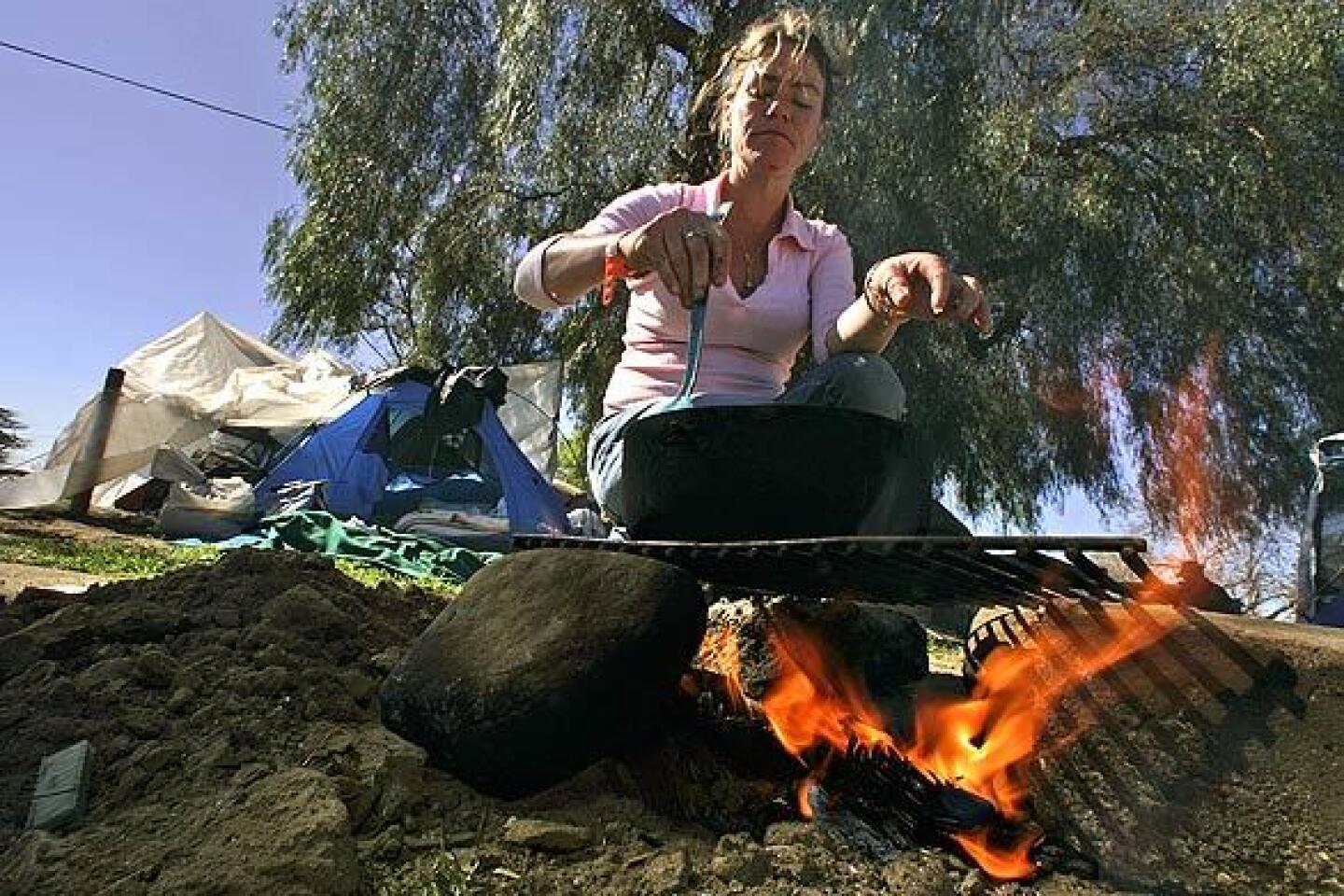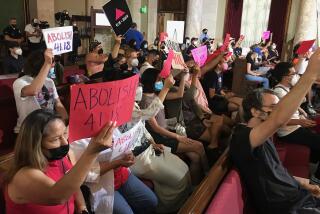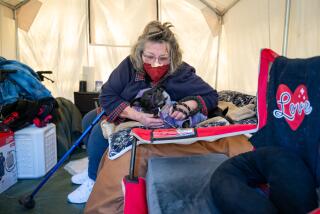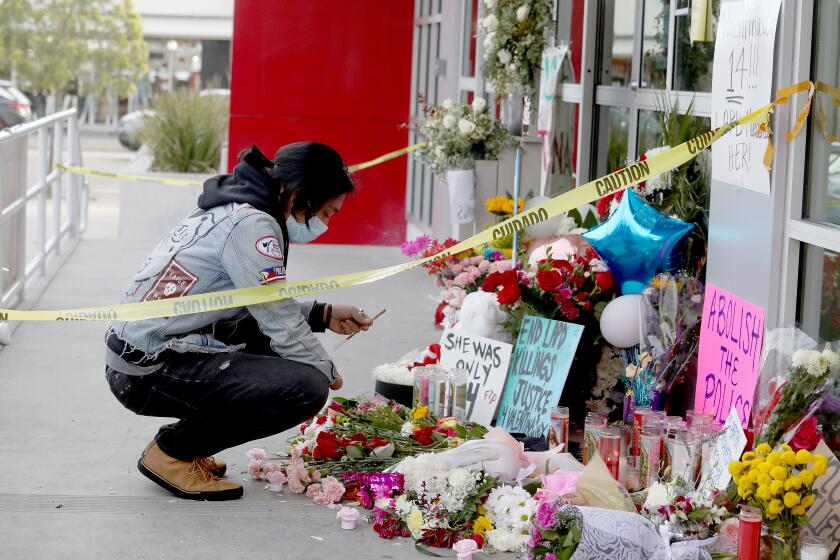‘Ontario residents only’ at Tent City
Dozens of Ontario police and code enforcement officers descended upon the homeless encampment known as Tent City early Monday, separating those who could stay from those to be evicted.
Large, often confused, crowds formed ragged lines behind police barricades where officers handed out color-coded wristbands. Blue meant they were from Ontario and could remain. Orange indicated they had to provide more proof to avoid ejection, and white meant they had a week to leave.
Many who had taken shelter at the camp -- which had grown from 20 to more than 400 residents in nine months -- lacked paperwork, bills or birth certificates proving they were once Ontario residents.
“When my husband gets out of jail he can bring my marriage certificate; will that count?” asked one tearful woman.
Another resident, clearly confused, seemed relieved to get a white band -- not understanding it meant she had to leave.
Pattie Barnes, 47, who had her motor home towed away last week, shook with anger.
“They are tagging us because we are homeless,” she said, staring at her orange wristband. “It feels like a concentration camp.”
Ontario officials, citing health and safety issues, say it is necessary to thin out Tent City. The move to dramatically reduce the population curtails an experiment begun last year to provide a city-approved camp where homeless people would not be harassed.
Land that includes tents, toilets and water had been set aside near Ontario International Airport for the homeless. Officials intended to limit the camp and its amenities to local homeless people, but did little to enforce that as the site rapidly expanded, attracting people from as far away as Florida.
“We have to be sensitive, and we will give people time to locate documents,” said Brent Schultz, the city’s housing and neighborhood revitalization director. “But we have always said this was for Ontario’s homeless and not the region’s homeless. We can’t take care of the whole area.”
Officials believe the local homeless number about 140, less than half of those currently in residence. Schultz wants to reduce Tent City to 170 people in a regulated, fenced-off area rather than the sprawling open-air campsite it has become.
No other city has offered to take in any of the homeless who Ontario officials say must leave.
“So far I have heard nothing,” Schultz said.
Even before the large-scale action Monday, police last week moved out parolees and towed about 20 dilapidated motor homes. A list of safety rules, including one banning pets, has been posted. The city says there is a threat of dog bites and possible disease from the animals.
The no-pet order caused widespread anger and tears Monday as some homeless people said they could not imagine life without their dogs. Many have three or four and vowed to leave Tent City before giving the dogs up.
“I will go to jail before they take my dog,” said an emotional Diane Ritchey, 47. “That’s a part of me as much as anything. The dogs are as homeless as we are.”
Cindy Duke, 40, hugged Ritchey, who was sobbing.
“I had to give up my 6-year-old son because I was homeless and I’ll be damned if I give up my dog too,” Duke said.
Celeste Trettin, 53, rolled up in a wheelchair. She and her husband have an Ontario address but have lived for years in a truck, parking wherever they found a safe place. Trettin, who got an orange wristband, said she believed she would be able to find the paperwork to prove she was from Ontario.
“We thought if we came here we could save some money, but now they have pulled the rug out from under us,” said Trettin, who has fibromyalgia, a painful disorder.
Marty Tovar took it all in stride. The 53-year old Mentone man had fresh bumps and cuts on his face after being on the receiving end of a recent assault. He didn’t seem to care if he had to leave.
“It doesn’t anger me; it angers a lot of other people here but not me,” he said, wearing no shirt under his blue overalls. “If I got to go I’ll just catch the next bus to the next town. Every town has a park.”
Still, by noon only one man had taken up an offer of free taxi rides back to their home cities, returning the 50 miles to Victorville, said Det. Jeff Higbee, spokesman for the Ontario police.
“By next Monday we should have everyone who is supposed to be gone out of here,” Higbee said. “The wristbands are only temporary so we can identify everyone.”
As the local homeless people were separated from the others, city workers were busy setting up fencing for the new encampment. Those who are approved will get 90-day renewable permits to stay.
Peter Bibring, staff attorney with the America Civil Liberties Union of Southern California, toured Tent City and spoke with local officials.
“We are concerned that however they go about trying to reduce this population they don’t depend on arrests or property seizures for people who have no other place to go and are just looking for a place to sleep,” he said. “We will continue to monitor the situation.”
Although no one at the camp seemed happy about efforts to shrink Tent City, some tried to see Ontario’s point of view.
Tina Gove, 39, was evicted from her Pomona home and has been at the encampment for three months. Like many others in Tent City, her life has been marked by drug problems and mental illness.
Her four children, she said, were taken from her because of a past methamphetamine addiction.
“If they throw me out I’ll be back on the street, and I don’t want to be back on the street because it’s scary,” she said. “But I think we should all be grateful because if Ontario hadn’t opened this place for us, where would we be today?”
More to Read
Start your day right
Sign up for Essential California for news, features and recommendations from the L.A. Times and beyond in your inbox six days a week.
You may occasionally receive promotional content from the Los Angeles Times.
